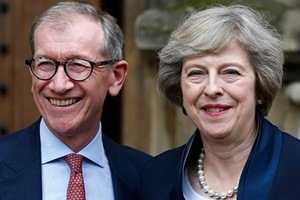The incoming British PM Theresa May was once quite annoyed when she learnt that Margaret Thatcher would become the country’s first woman Prime Minister.
Thatcher’s election as the British PM in 1975 had made any ambition for women seem realistic, hence the reason why May never made her desire to reach the top post of the country a secret, even when she was a teenager.
The Guardian reported Pat Frankland, who enrolled with May at St Hugh’s College, Oxford in 1974, saying: “She wanted to be the first woman prime minister back in our Oxford days and she was very irritated when Maggie Thatcher beat her to it. It was just – ‘I wanted to be first and she got there first’.”
“I met her on our first or second day of college, when she was 17 and I was 18. I was aware of that ambition from the very early days. She used to drag me along to political lectures.”
However, Frankland told The Guardian that May (now 59) is not a follower of Thatcher.
It is interesting that when May is all set to occupy the 10 Downing Street office, comparisons are being drawn between her and Thatcher, credited with introducing Thatcherism, an economic philosophy favouring free market and small state.
She has been lauded for being “a strong woman”, a figure that may bring in stability in the wake of chaos. As the Brexit crisis looms large, there are, however, apprehensions about her capability, with some suggesting she may have been “set up for the fall.”
The daughter of a Church of England vicar, May studied geography at Oxford University, joining the Bank of England after her studies. She worked as a financial consultant at the Association for Payment Clearing Services (APACS) before becoming a lawmaker for Maidenhead, west of London, in 1997.

